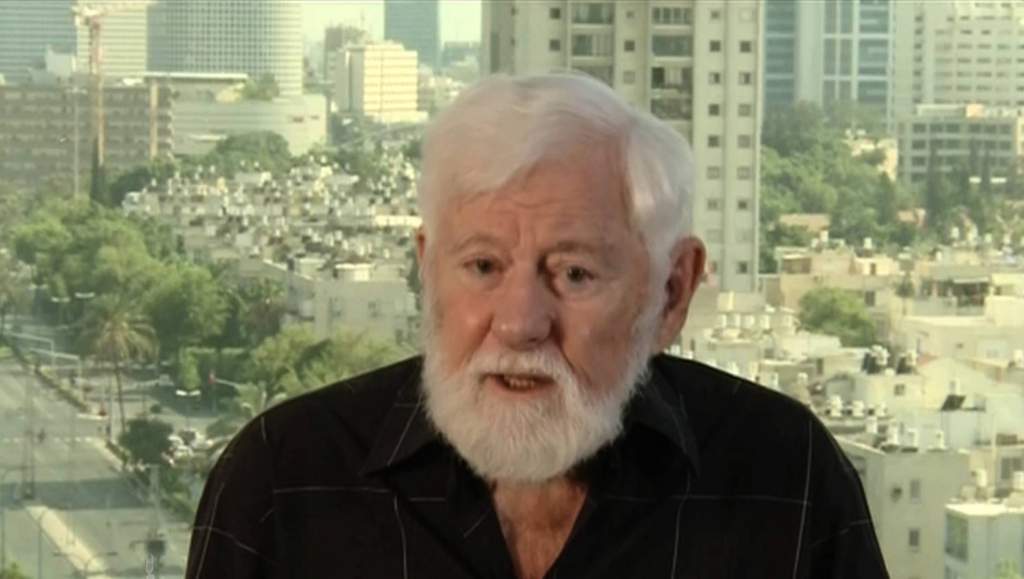Uri Avnery — a prophetic voice in a troubled region is no more
The great Israeli peace writer and peace activist Uri Avnery passed away on Aug 20 at the age of 94. He may not be familiar to many of us here. But his work for the cause of a just peace in the Middle East should be an example for us all.
Sep 01, 2018

By Anil Netto
The great Israeli peace writer and peace activist Uri Avnery passed away on Aug 20 at the age of 94. He may not be familiar to many of us here. But his work for the cause of a just peace in the Middle East should be an example for us all.
The youngest of four children, Avnery first arrived in Mandate Palestine in 1933, after his father, a German Jewish banker, emigrated from Hanover with the family following Hitler’s rise to power.
Avnery joined Irgun, a Zionist paramilitary organisation, which operated in Palestine in the 1930s and 40s. But he later left Irgun, saying he didn’t agree with their terror tactics. He did fight as a squad commander in the 1948 Arab-Israeli War. He was wounded twice and after the war, he turned to journalism and eventually politics.
As a critical journalist and activist in Israel, he wrote fearlessly, sometimes paying a heavy price. His editorial office was bombed, he survived two assassination attempts, and in one vicious attack, both his hands and all his fingers were broken.
Much later, in the 1970s, he gave up on Zionism, and became one of the founders of the Israeli Council for Israeli-Palestinian Peace. His desire for co-existence with the Arab nations in the region led him to eventually turn to peace activism, founding the Gush Shalom peace movement. I met a few of the Israeli members of this movement at a forum in Penang in 2005 after their visit to KL for an international peace conference. They struck me as courageous and visionary individuals, working against the odds.
Believing that a two-state solution provided the path to peace, Avnery was one of the few Israelis to meet Palestinian leader Yasser Arafat. He felt peace would be impossible without a two-state solution that would see Israel creating a viable Palestinian state and returning some of the land it took from the Palestinians.
Despite his unfailing optimism in the cause for peace, Avnery was very much a marginal figure in Israeli society. He was sidelined by successive governments in Israel and then the Trump administration in Washington. Many in his homeland hated him for reaching out to the Palestinians and expressing solidarity with them.
Avnery shunned religion, though. A dozen years ago, he said, “Well, I myself am a 100 percent atheist. And I am increasingly worried that the Israeli-Palestinian struggle, which dominates our entire life, is assuming a more and more religious character.”
The Bishop of Rome once said it would be better to be an atheist than a hypocritical Catholic whose life is not Christian. (“I don’t pay my employees proper salaries, I exploit people, I do dirty business, I launder money, (I lead) a double life.”)
That said, some have recognised Avnery as a prophet of his times. The award-winning writer Eric Margolis said in a tribute: “Like most Jewish prophets, Avnery was loved or hated. He had no equal in the Arab world. Like Gandhi, his message was too logical and too uncomfortable for nationalist fanatics. His icy scepticism and clear thinking was a godsend in the overheated emotional hothouse of the Mideast.”
Renowned scholar Noam Chomsky once explained the meaning of the word prophet: “The word prophet is a very bad translation of an obscure Hebrew word, navi. Nobody knows what it means. But today, they’d be called dissident intellectuals. They were giving geopolitical analysis, arguing that the acts of the rulers were going to destroy society. And they condemned the acts of evil kings. They called for justice and mercy to orphans and widows and so on.
“I don’t want to say it was all beautiful. Dissident intellectuals aren’t all beautiful… And the nivi’im (prophets) were treated the way dissident intellectuals always are. They weren’t praised. They weren’t honoured. They were imprisoned like Jeremiah. They were driven into the desert. They were hated.”
Perhaps Matthew Chapter 5 describes the life of Uvnery best: “Blessed are the peacemakers: they shall be recognised as children of God. 10 Blessed are those who are persecuted in the cause of uprightness: the kingdom of Heaven is theirs. 11 Blessed are you when people abuse you and persecute you and speak all kinds of calumny against you falsely on my account. 12 Rejoice and be glad, for your reward will be great in heaven; this is how they persecuted the prophets before you."







Total Comments:0